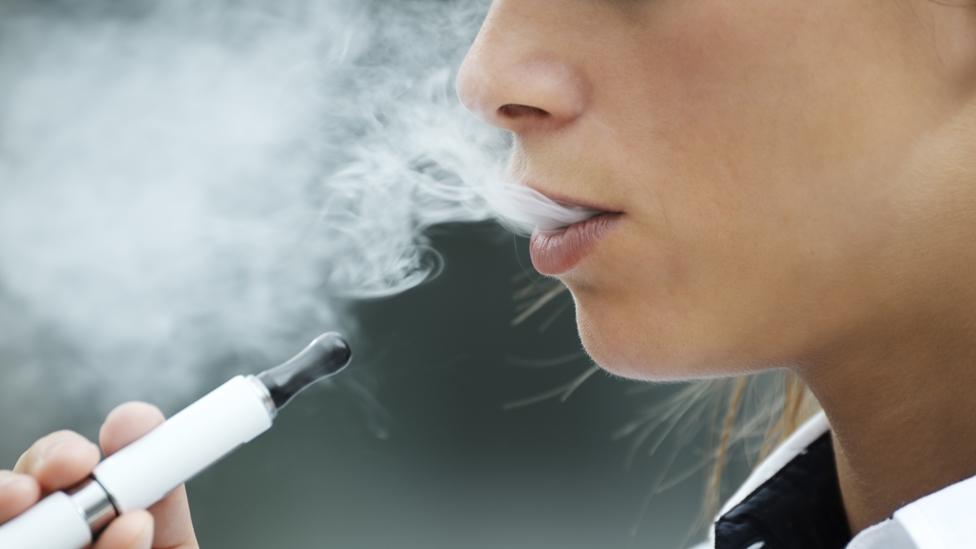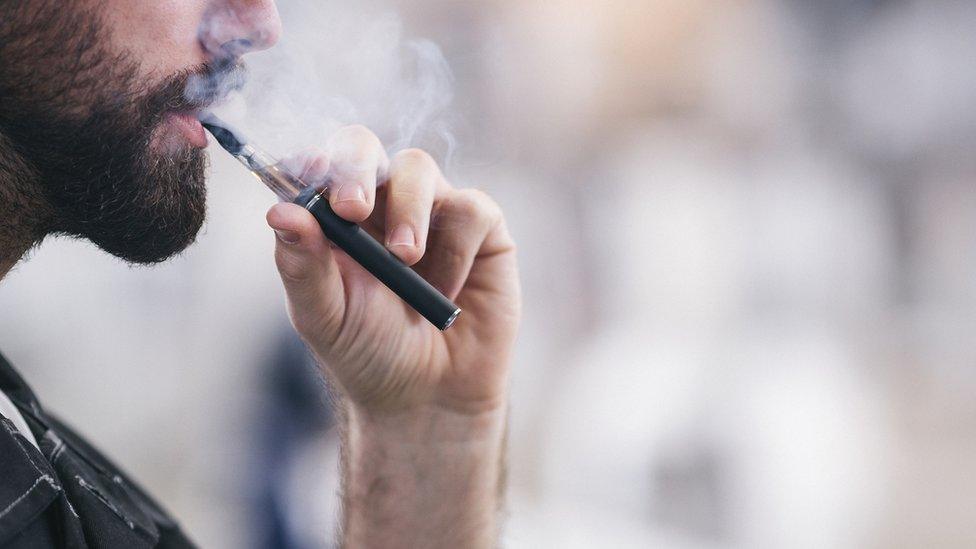Two UK deaths 'may be linked to vaping lung injury'
- Published

There have been two potential cases of e-cigarette or vaping-related lung injury in the UK in the past year in which both patients died.
The Medicines and Healthcare products Regulatory Agency is currently investigating the deaths.
It has also received 20 reports of serious adverse reactions to vaping.
Public health experts said the deaths were "concerning" but UK-regulated e-cigarettes were far less harmful than smoking.
Public Health England advises smokers to switch to using an e-cigarette to help the chances of quitting completely.
But it advises people who have never smoked not to start vaping.
There are more than three million people who vape in the UK.
More than twice as many people smoke cigarettes, which is estimated to cause about 213 deaths per day in England, or 77,800 per year.
Illicit liquids
Public Health England health improvement director Prof John Newton said: "We have also been working with the MHRA to be sure that any cases of respiratory illness linked to e-cigarettes are correctly identified and reported."
He said the recent US outbreak of serious lung illnesses "was strongly linked to people vaping illicit liquids containing vitamin-E acetate".
"We have not however seen a similar outbreak here in the UK," Prof Newton added.
Vitamin-E acetate is banned in nicotine e-cigarettes in the UK, along with a range of other ingredients.
The two suspected deaths and more than 20 serious adverse reactions to e-cigarettes were reported to the MHRA's Yellow Card scheme, external.
Until a coroner's report is released, the deaths cannot be confirmed as being linked to vaping.
Healthcare professionals in the UK have been sent advice this week on how to report cases of lung injury, external to the body in charge of ensuring the safety of vaping devices.
They are "probably" related to e-cigarette use, if the patient meets all of these criteria:
has used an e-cigarette or vaped in the previous 30 days
has pulmonary infiltrates in a chest X-ray
has no respiratory infection
has no evidence of any other diagnosis
- Published4 October 2019

- Published30 January 2019

- Published17 August 2018
